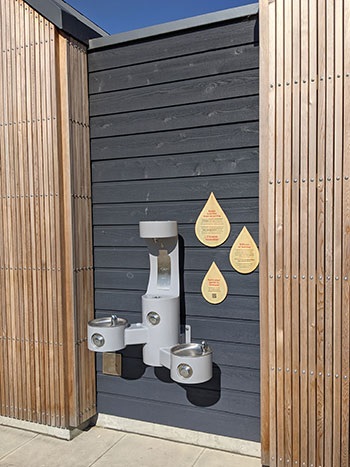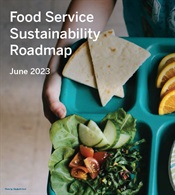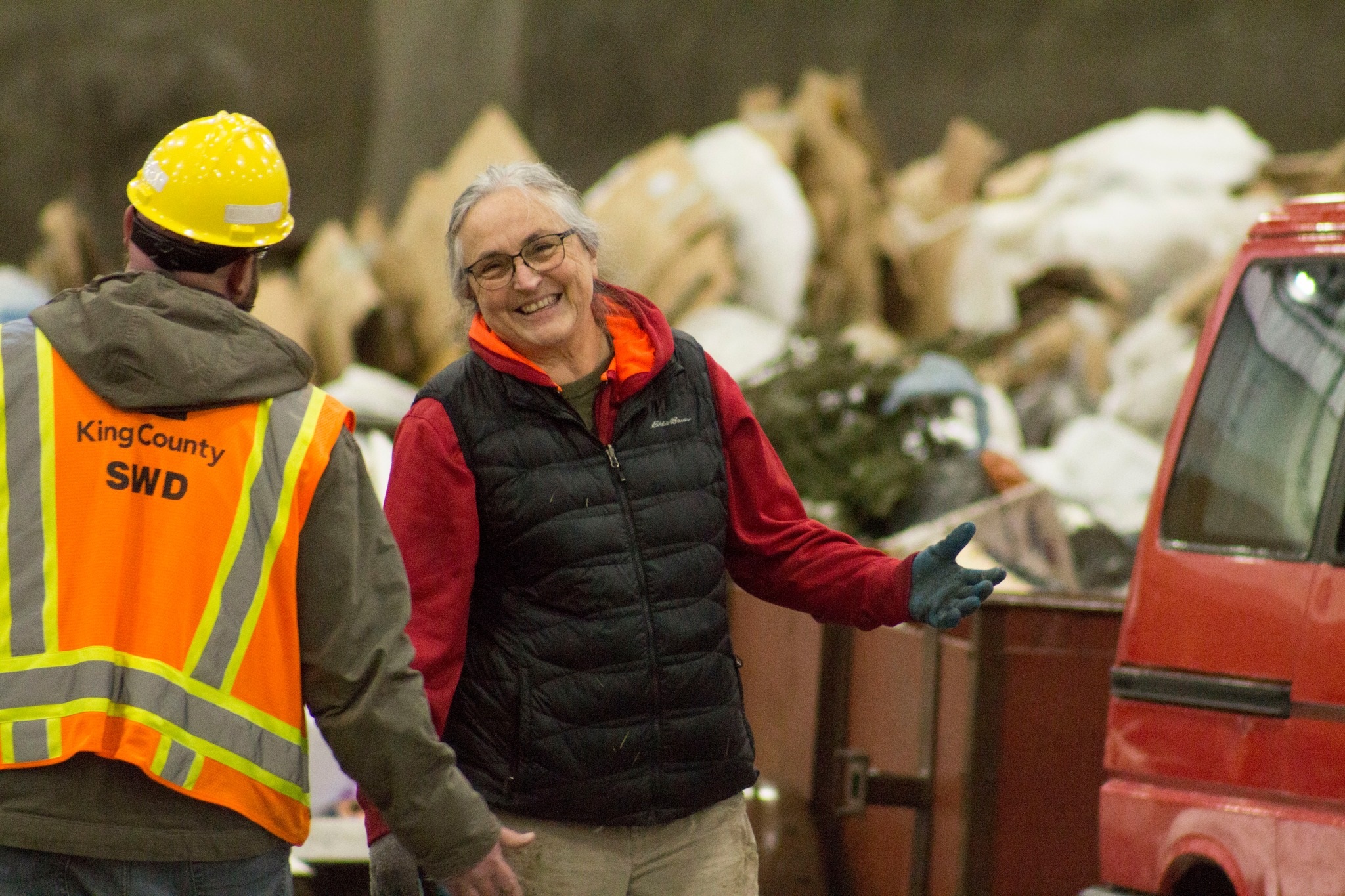Recycling, Compost, and Garbage Services
Announcement: Service Re-route
Waste Management (WM) announced a minor reorganization of residential routes that will take effect on September 15, 2025. This will impact 865 residential customers in Kirkland. Read more at Public Announcement: Important Waste Management Route Change – City of Kirkland.
Solid Waste Guidelines
Curbside waste collection services are provided by Waste Management (WM) and include garbage, recycling, and compost. In Kirkland, garbage carts are green  , recycle carts are blue
, recycle carts are blue  , and compost (food and yard waste) carts are gray
, and compost (food and yard waste) carts are gray  .
.
Food scrap composting available by request for apartments and businesses.
Utility Rates and Billing
Rates are determined by the size of the garbage container. All residents and businesses in Kirkland must subscribe to waste collection service.
Service information
Find more information on curbside collection of extra materials, holiday schedules, and more.
Recycling Beyond the Cart
There are many ways to recycle items not accepted in the curbside recycling cart. Find out more on the recycling beyond the cart webpage.

Recycling Collection Events
We host multiple recycling collection events for materials that do not have other accessible recycling options.
Recycling Collection Events -
The best way to hear about upcoming events is to sign up for our recycling event email reminders.
Sign up for recycling event email reminders
Reducing your waste
Recycling is only one part of responsibly managing the waste from our community. We have waste reduction goals for our community to throw away less garbage
and reduce the amount of waste it produces overall (including recycle and compost). We need your help to make less waste!
Start composting
Composting food instead of throwing it in the garbage is a simple change that can reduce a household's environmental impact. When food scraps are placed in the gray compost cart, they are turned into compost in a matter of weeks. In comparison, food that goes to the landfill decomposes through a different process that releases methane, a potent greenhouse gas.
We offer two ways for Kirkland residents to start composting for free:
- Collect a countertop food scrap container at the Public Works desk in City Hall, located in the upstairs lobby.
- Drop off your food scraps at City Hall or the North Kirkland Community Center through our community food scrap drop-off program.
Eligible Kirkland businesses can begin food scrap collection at no additional cost.
Learn more about commercial composting, eligibility requirements, and free resources on our Business Waste Collection Services page.
Waste less food
The average American family tosses about a quarter of the food they buy — for a family of four, this is about $1,500 worth of groceries, or 1,000 pounds!
When food is wasted, all the resources that went into growing and transporting it are also wasted.
Composting wasted food is good, but not wasting food in the first place is even better. Save your family money and help the planet at the same time —
win win! See our tips for eating more of the food you buy.
 Bring Your Own (BYO) Reusables
Bring Your Own (BYO) Reusables
The City encourages community members to help prevent and reduce waste by bringing your own reusable cups, water bottles, containers, napkins, and utensils.
The City has installed water bottle refilling stations at Marina Park, Juanita Beach Park, Peter Kirk Park, and Totem Lake Park. Find a water bottle refilling station location around Kirkland.
Learn more about the City's partnership with other cities to promote bringing your own cup to coffee shops.
Food Service Sustainability Roadmap
 The Lake Washington School District Food Service Sustainability Roadmap (FSSR) is a district-wide, coordinated, systematic approach to reducing food waste, decreasing organic materials (food waste) from going to landfill. The FSSR is meant to help improve food sustainability efforts at every level of the school district.
The Lake Washington School District Food Service Sustainability Roadmap (FSSR) is a district-wide, coordinated, systematic approach to reducing food waste, decreasing organic materials (food waste) from going to landfill. The FSSR is meant to help improve food sustainability efforts at every level of the school district.
Click to learn more about the FSSR and read the document.
King County's Northeast Recycling and Transfer Station (NERTS)
 Click on the button below to find updates from the City of Kirkland on King County's NERTS project.
Click on the button below to find updates from the City of Kirkland on King County's NERTS project.